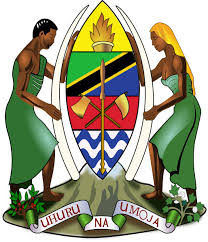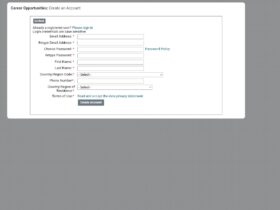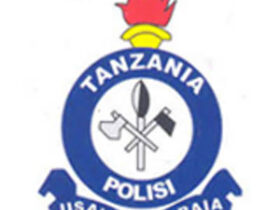TANZANIA BASIC EDUCATION SECTOR RESPONSE AND RECOVERY PLAN DUE TO EFFECTS OF CORONAVIRUS DISEASE (COVID-19). The Ministry of Education, Science and Technology (MoEST) would like to extend appreciation to all who have contributed to the planning and formation of this COVID-19 Education Sector Response and Recovery Plan. Special appreciation goes to all key education sector stakeholders
whose contributions have been very useful in the development of this document. The Ministry wishes also to acknowledge the support of development partners for their advice and recommendations, which have been of it first importance. Special thanks to the COVID-19 taskforce team from MoEST and PO-RALG for their efforts which resulted in the production this plan.
The Government of Tanzania, through the Ministry of Education, Science and Technology (MoEST), in collaboration with President’s Office – Regional Administration and Local Government (PO-RALG) and other Education Stakeholders have developed the TanzaniaBasic Education Sector Response and Recovery Plan Due to Effects of Coronavirus Disease (COVID-19).
COVID-19 instigated a disruption in the education calendar that in turn has affected the learning of children, especially those who were preparing for National Examinations. It is obvious that there will be a multitude of effects, including a delay in the implementation of the curriculum within the required time and development of negative psychological effects on children; especially COVID-19 survivors and those who may have lost their close relatives and parents. Furthermore, there is an interruption in the education budget.
This plan provides strategies for Basic Education Sub Sector response to COVID-19, by ensuring that children are safe from contracting the virus and are able to continue learning at home, supported by parent’s assistance and the guidance of the Heads of School. Various interventions for each phase during and after the crisis are outlined, ensuring continuity of learning at home and smooth resumption of teaching and learning when schools re-open
Tanzania has been affected by Coronavirus Disease (COVID-19) like many other countries, The World Health Organisation (WHO) declared the situation an international public health emergency on 30 January 2020. The disease is now declared a pandemic, hence calling for global and country-level actions to contain COVID-19 spread as well as offering proper to treatment to the affected people.
In the wake of this pandemic, the Government of Tanzania (GoT) immediately responded by taking preventive and preparedness measures including the closure of academic institutions, banning of community and public events and gatherings, postponement of games and sports events and restriction of assemblies and large congregations. Consequently the closure of Tanzania’s academic institutions affects a total of 13,544,069 students in basic education (BEMIS, 2019).
Doubtlessly if this situation persists, this could lead to long- term negative impacts on children’s’ learning and development.
BASIC EDUCATION SECTOR COVID RESPONSE PLAN
- Goal To facilitate continuity of learning while protecting students in basic educa-
tion, and to ensure healthy livelihood and capacitate teachers, Ward Education
Officers and School Quality Assurers to facilitate learning during school clo-
sures and after school re-opening.
Objectives
The Basic Education Sector Response and Recovery Plan seeks to align to the national response initiative plan in addressing the COVID-19 pandemic. The plan is centered around four goals:
- Goal 1: Ensure continuity of learning, safety and protection;
- Goal 2: Restore educational access to all affected students;
- Goal 3: Restore the basic functions of the education system; and
- Goal 4: Development and planning to improve and sustain education sector resilience
Target Population
The plan will reach a total of 13,544,069 students in basic education at the following levels:
- Pre-Primary Education: 1,334,992 students (660,127 girls and 674,865 boys);
- Primary Education: 10,185,872 students (5,094,582 girls and 5,091,290 boys);
- Secondary Education: 2,023,205 students (1,040,985 girls and 982,220 boys).
For more get PDF file here
MoEST will also develop clear national guidance on parameters for decision making on school re-opening, beginning with lowest risk areas, and moving to areas of higher transmission.
The Taskforce will support development of
clear and easy-to-understand protocols to be used as schools re-open, which include: continued physical distancing measures, including prohibiting activities that require large gatherings, staggering the start and close of the school day,
staggering feeding times, moving classes to temporary spaces or outdoors, and potentially having school in shifts to reduce class size. Additionally, MoEST will create a framework for the re-opening of schools using six key dimensions to assess their state of readiness and inform planning, policy, financing, safe
operations, learning, reaching the most marginalized and wellbeing/protection.
After schools re-open, the first two months will enable MoEST to design and approve all interventions related to communications and advocacy, community sensitization, teacher training and distance learning. MoEST will provide the training to WEOs and DSQA on information management and communication,
and will spend the first six months supporting them to collect essential student data, including registration, school dropout, etc. MoEST will use this data to firstly amend and implement its inclusive and equitable education plan for
out-of-school children, but also to develop, in the longer-term, a national education in emergencies preparedness strategy, utilizing lessons learned from COVID-19.





Leave a Reply
View Comments